Oxford LTN bollards to be replaced in £100k plan
- Published
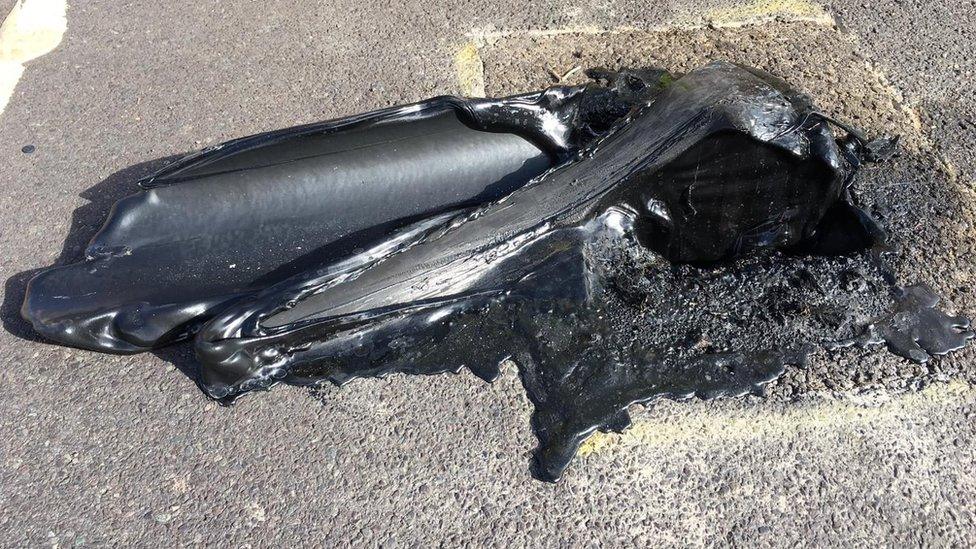
In July, some plastic bollards were melted to the ground. All will now be replaced
A council will spend £100,000 on replacing plastic bollards that are being used in a traffic-calming scheme after they were repeatedly vandalised.
Low Traffic Neighbourhoods (LTNs) were introduced in the Divinity Road, St Clement's and St Mary's areas of Oxford in May as part of a trial.
Oxfordshire County Council said steel bollards will be installed after "unprecedented levels of vandalism".
It spent £12,000 replacing other LTN furniture earlier this year.
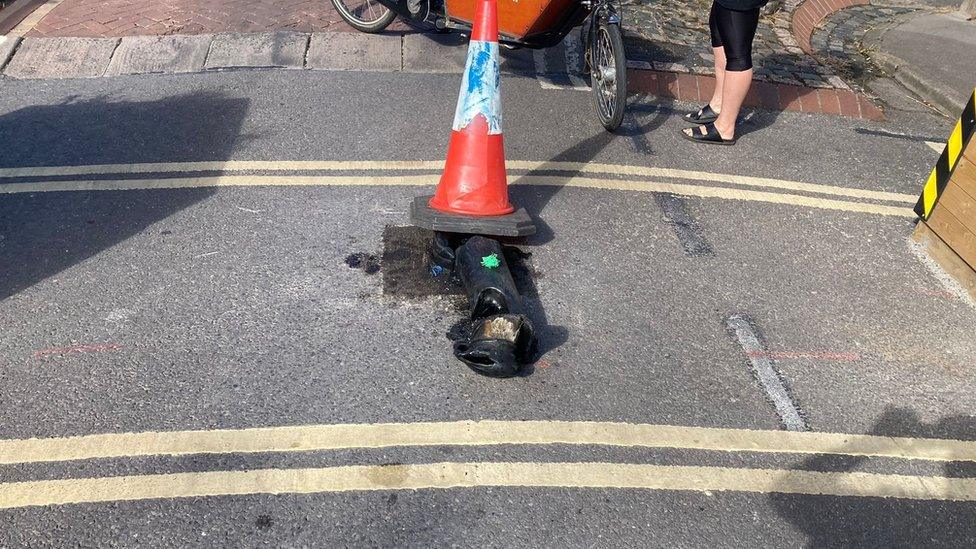
A councillor said the "ongoing damage" has resulted in "significant cost" to the authorities
Andrew Gant, the council's cabinet member of highways management, said it was a "key moment in the continuation of the LTN trial".
"Ongoing damage has come at a significant cost to both the council and Thames Valley Police in both time and money, with potentially serious consequences for people's safety," he said.
"Damage to the bollards and persistent use of the low traffic neighbourhood streets as through-roads is not only a risk for the safety of road users but impacts monitoring data quality, which could delay the decision on the trial."
Emergency services have been consulted about the steel bollards and will be able to remove them when they need to.

Numerous protests have been held to rally against the LTNs, including one in Cowley in August
The Reconnecting Oxford group, which is opposed to LTNs, has raised £19,800 ahead of a potential legal challenge against them.
It says LTNs increase congestion and pollution, discriminate against disabled residents, and "threaten the livelihood of local shops and businesses".
A consultation over the LTN trial will end on 30 November. The council is due to decide whether to make the scheme permanent in February.
The authority made a separate LTN permanent in July.
The scheme covering Church Cowley, Temple Cowley and Florence Park was first introduced as part of a trial in March 2021.

Follow BBC South on Facebook, external, Twitter, external, or Instagram, external. Send your story ideas to south.newsonline@bbc.co.uk, external.
- Published31 August 2022
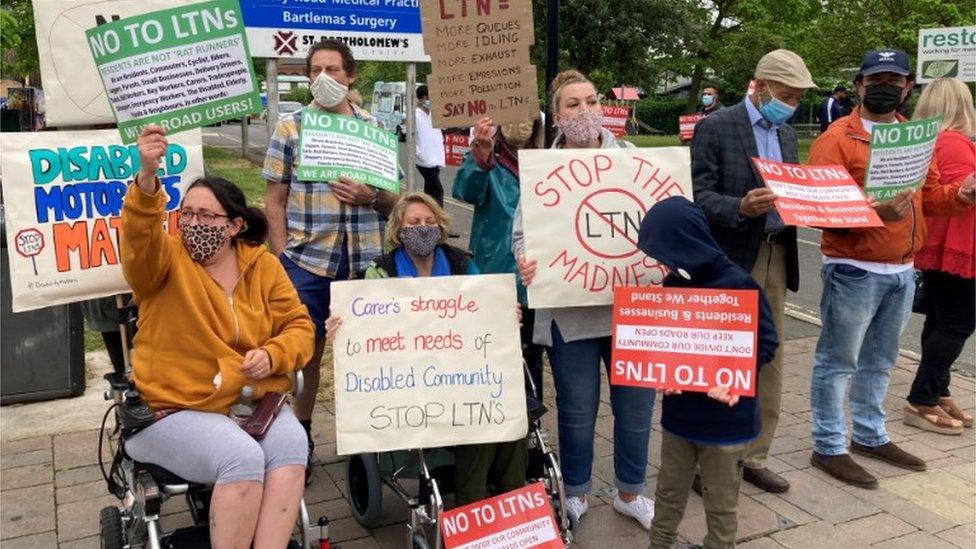
- Published27 August 2022

- Published12 July 2022

- Published13 June 2022
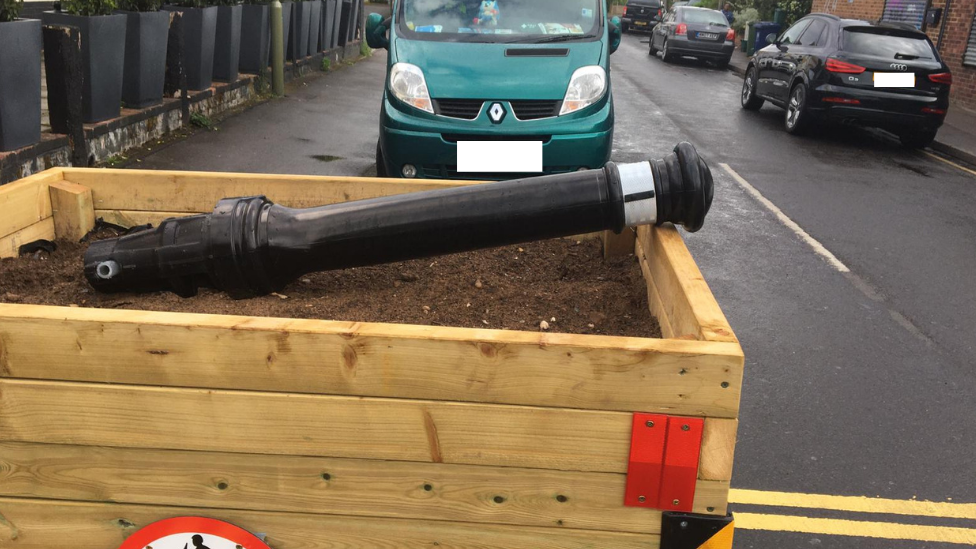
- Published19 July 2022
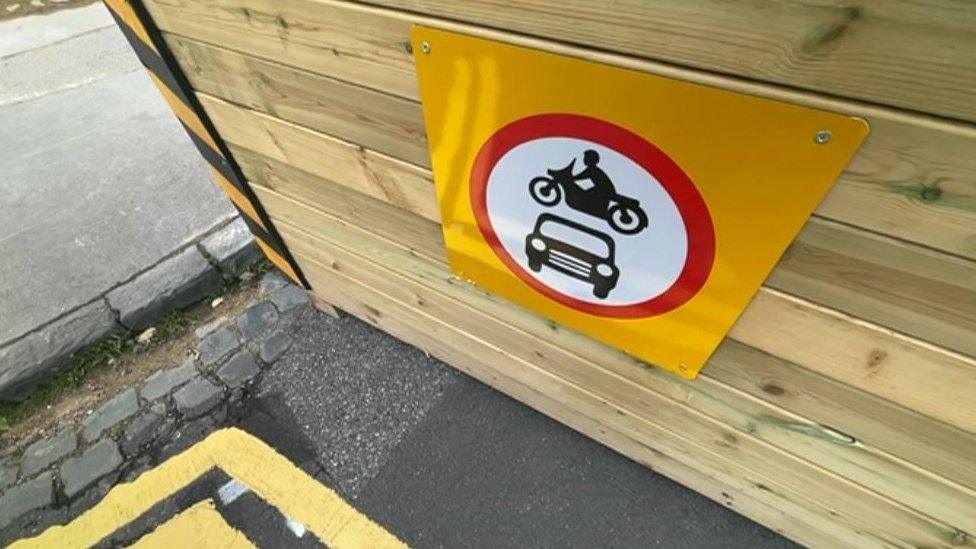
- Published4 July 2022
